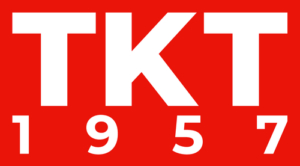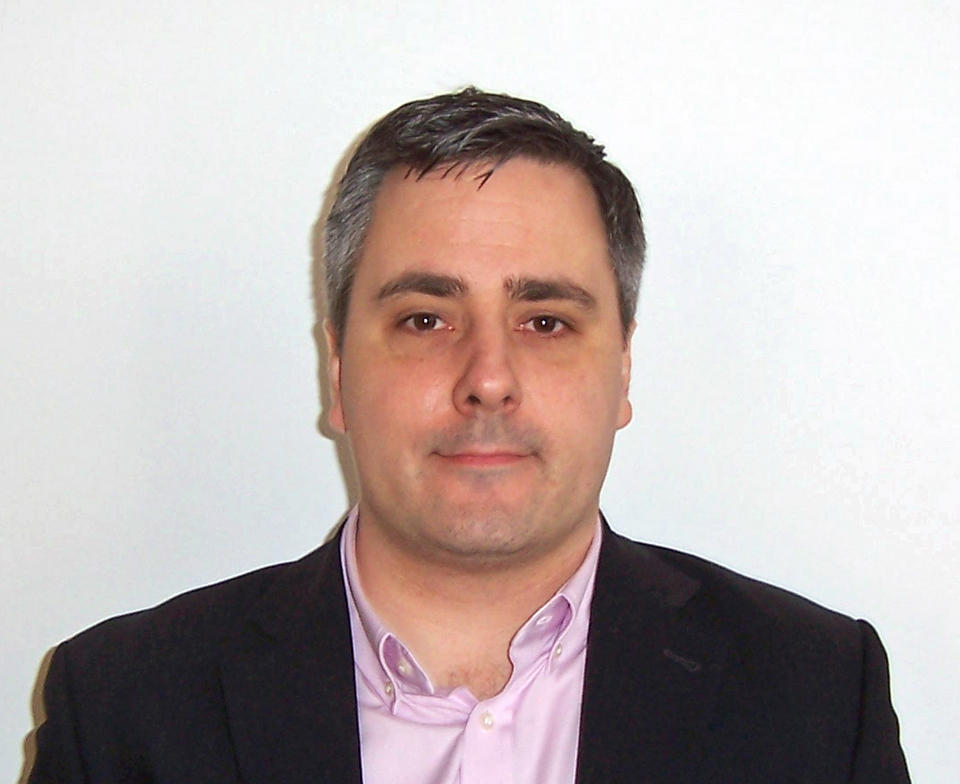Interview with Phil Myers, Chief Technology Officer at Lawo AG.
Parents and Education
– Where and when were you born, who were your parents and what did they do?
I was born in the UK, in London. My father was a lecturer in one of the colleges down there, he taught theatrical skills – set design and everything surrounding it. My mother was a housewife, she did have a number of roles working in some of the local shops nearby, but she fundamentally looked after me and my sister in the early years.
– How did you study at school? What subjects were your favorite?
I really excelled in, and liked, more technical-related topics at school. I was particularly interested in computers, also technology designs – things like architecture. I also did well in the ‘core skills’ – English and maths – but I would say I definitely had a tendency to drift towards the more technically-oriented subjects. And I think that’s reflected in the skills I picked up after I left school.
– Did you go to a private or public school?
Public school.
– What about your university? What direction did you choose to go in after school?
I went into what we call «further education», so I did about four years after I left school. I focused on graphic design, this is something I was very much interested in. But after about two years I decided to really focus on time-based media, or media production.
What was really exciting was that although graphic design gives you a great concept of creativity, in itself it’s very two-dimensional. I was really excited by moving pictures, so I really wanted to go into media production. At that point I learned a lot of skills around media production: camera operator, video editor, even some of the more core skills relating to directing, producing and so on.
– Were you working in parallel during these years or were you just studying?
No, I studied only in those years, so it was a full-time education.
– Did you work during the summers?
I actually took a different approach. During summers I worked for a number of broadcasters in the UK doing a variation of tasks from assisting in prop design, to video editing. In my latter stages of further education, I spent around three months at the BBC, here in the UK, learning a lot more about how news production works, and specifically working in the video editing department.
Own business
– What did you see yourself doing after university?
When I left further education, I came to the conclusion quite quickly that I wanted to be in control of my own future. The first thing I did after I graduated was set up my own business.
From 1997 through until the latter part of 2000 I had my own business in the UK providing video editing and TV production services. I took a lot of the skills that I learned when I was at the BBC and decided that the best way to accelerate my career was to set up my own business. I noticed that there was a gap in the market for a company to provide these services – not only video editing, but also graphics. And I also used that to develop our own short films, commercials and so on.
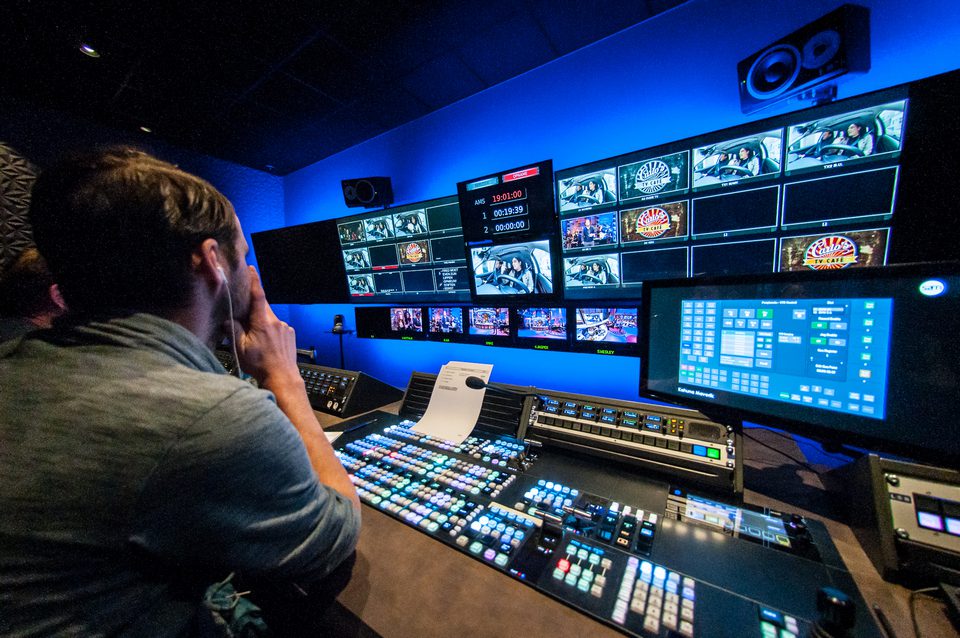
– Were you the only shareholder?
No, I actually went into business with somebody I was in education with. I had the desire to look after the video editing or the post-productions side of the business (including video editing, sound mixing, graphic design), and he was very much interested in the production side of it (producing, directing, etc.). So we founded the business together in mid-1997. By having your own production business, by nature you also need your own technical services to not only acquire the content, but also edit it and produce ready for transmission.
– 1997 witnessed a technological boom, and then came the crisis in 1998. Is that the reason you shut down your company?
A couple of things. Through the period of 1997 all the way to 2000 we grew the business year on year, but I was also more heavily involved with a lot of the companies that provided us technology – providing skills, testing, consultancy for them. I would say, in the early part 2000s it was clear that video editing technology was going to become more readily available to a lot of my clients I was editing for.
They were asking me more and more to come and edit for them with their equipment rather than use the services we provided. That in combination with the fact that I was asked to come and support these companies further, I decided that my future was probably on the other side of the fence – working for manufacturers to drive the technology I had previously been purchasing.
Pinnacle Systems Inc.
– How did you find a new job after your business?
I pretty much had a job lined up straight away. One of the companies that I had bought a lot of equipment from, from 1997 onwards, was an American company called Pinnacle Systems Inc. They were acquired by Avid Technology in, I believe, 2005. I was doing some consultancy and events for them, and when they realised that I was going to be closing my business, they made me an offer to come work for them in Europe, Africa and the Middle East, looking after the business development of their products.
– Working for someone else is very different to working for yourself. How did you adapt psychologically after owning your own business?
I think it’s always hard when you’ve had a business for nearly four years. But the reality was I could see that the market was changing and I had to do one of two things – to adapt the business, or look at where I want to go in the future. Both do have pros and cons.
The common theme is that the hours are always long, even when you run your own business – you probably shouldn’t work every day and every hour, but you end up doing that because it’s your business. It’s also the same when you’re working for a large company that has a global span. I think for me it was a relatively easy transition. One of the benefits that I got by moving into my new role is that I got to see a lot of places in the world I wouldn’t have seen – my business was very local to the UK. And I also got a lot of knowledge in products and technologies by working for that company, ones that my company wouldn’t have been using on a daily basis.
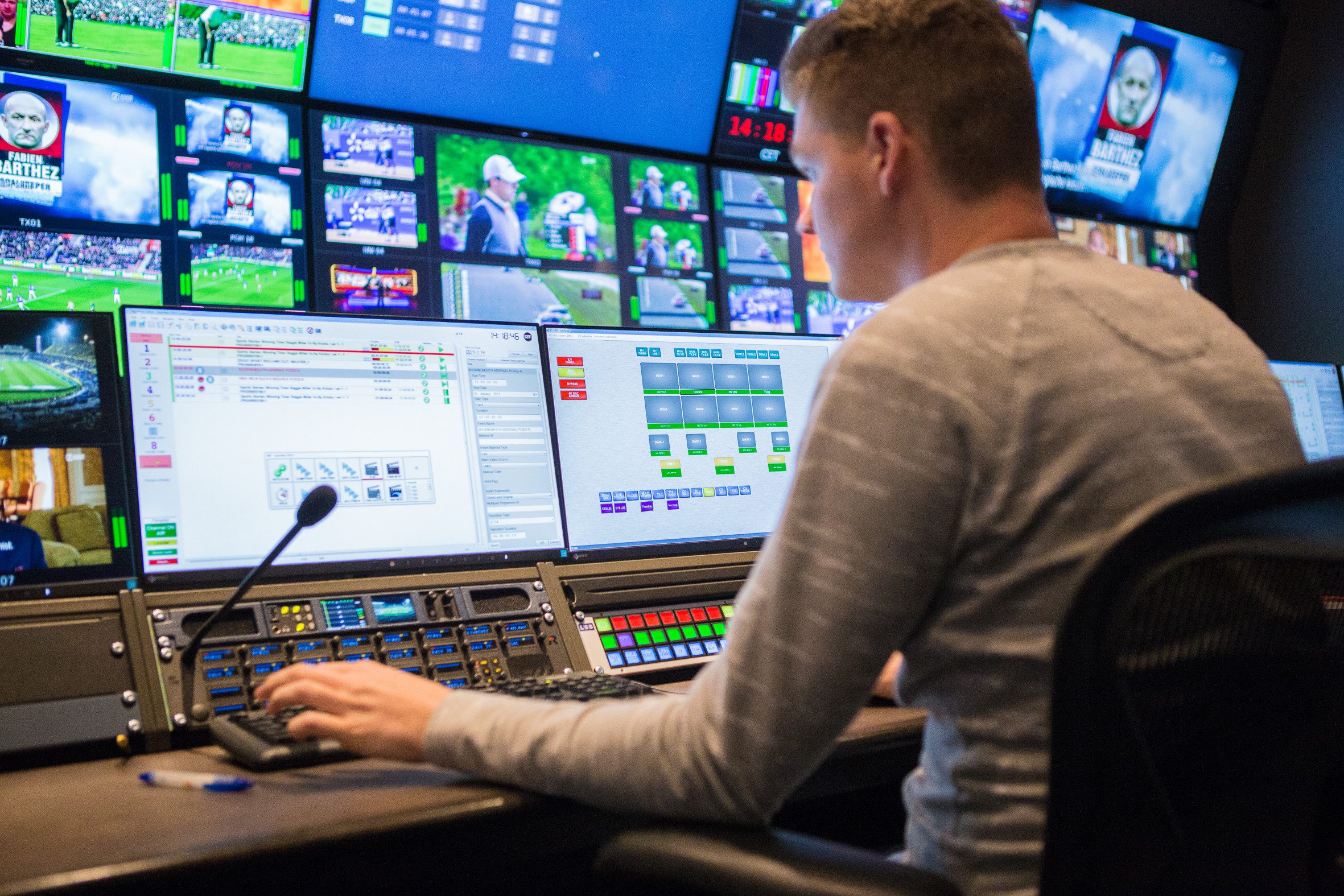
Sony
– You said that you were working there until 2005. How your career was developing after that?
Yes, I worked for Pinnacle System from late 2000 until middle of 2005. I joined Sony in the UK in 2005, and I took on the role of a product manager, looking after one of the brand-new technologies at the time which was called XDCAM.
They approached me at a major trade show and asked if I would be interested in doing work for them, and launch this product technology into the marketplace. In 2005, a lot of the technology for camera acquisition was based around linear tape, and Sony had developed an optical disk-based system, called XDCAM, which brought significant benefits to not only the camera operators but also the editing workflows. I joined Sony pretty much straight after leaving Pinnacle Systems to take on the role of product manager for the XDCAM family.
– Was the office located in Basingstoke?
Yes, certainly.
– What region were you responsible for? What was the geography of your clients at this time?
I looked primarily after the UK business, but I also had a remit to look after and support the European market. As you probably know, Sony Basingstoke is the European headquarters for that business.
– What key skills did you learn working for Sony? What did this job give you?
I think the role at Sony was very much more commercially orientated, very focused on the business model. Also, I would say, they bring different cultures, being a Japanese business. In the role of a product manager at Sony, you’re really on the entire product life cycle, but you’re also responsible for forecasting and making sure that the sales metrics are in line with the product portfolio and the expectation from the business to deliver that portfolio.
– How long did you work at Sony?
I was at Sony until late 2010 – around five years.
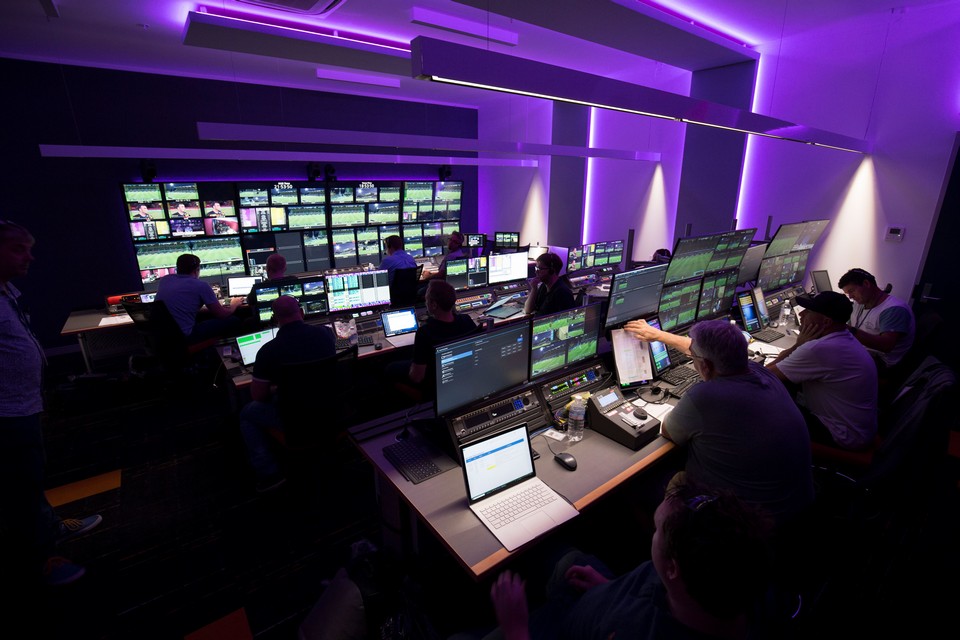
CVP (Creative Video Production)
– Why did you decide to leave such a large company with a broad client base?
I was asked to come and work for a company in the UK which had worked a lot with Sony, it was called CVP. They were Sony’s largest reseller of technology in Europe. I had a pretty good relationship with the CEO of that business, and he asked if I would come on board and take up the role of head of technology, reporting directly to the CEO. For me it was more a career move in order to take more responsibility. In my role at CVP I was fundamentally responsible for the technology decisions that we brought to a portfolio, but I was also responsible for how we dealt with professional services – project management, the delivery of projects. That was really across multiple vendors. CVP is not only a global reseller for Sony, but they also represent all the other major brands: Canon, JVC, RED, etc. For me it was a step of advancement in my career, to take on more responsibility.
– Was this when you moved to the company you work at now?
No, in 2010 I joined the company called CVP (Creative Video Production). For CVP I worked from 2010 to 2013.
– Which key tasks did you have at this company? What was your main achievement?
As I said, my main responsibility was reporting to the CEO of the business, and my role was head of technology. So I was responsible for the technology that the company sold, and so it was part of my responsibility to go and identify technology which would be of interest for us to sell in the future, and to increase our portfolio products that we sell to our customers. In addition to that, we also had a system integration part of the business – providing solutions for customers, and we had many projects in the UK. For universities we built two brand-new TV studios, and that team had a responsibility to report to me.
Grass Valley
– Why did you decide to change your job after working there?
Unfortunately, I was on holiday in August 2013, and I received some sad news that the CEO had passed away. In the latter part of 2013, it was clear that the company had a new direction, and it was time for me to look for other opportunities. I was approached by a company called Grass Valley to see if I would be interested to come and work for them in their solution architects group.
When I joined, I was responsible for designing video server solutions not only for live production but also for playout, and I was also looking after solutions involving the media asset management called GV STRATUS.
– How long did you work there?
I worked at Grass Valley from November 2013 until December 2016, so I guess, a couple of years.
Snell Advanced Media
– Why did you decide to leave GV?
In the last part of my time at Grass Valley I was looking after a number of projects which involved IP technology or video-over-IP, and I was asked if I was interested to come and work for a company called Snell Advanced Media here in the UK, and they were pretty close to my home. They had a role going for, effectively as the overall product manager for the IP control and monitoring line worldwide. I joined them in January 2017 to look after that business for them globally.
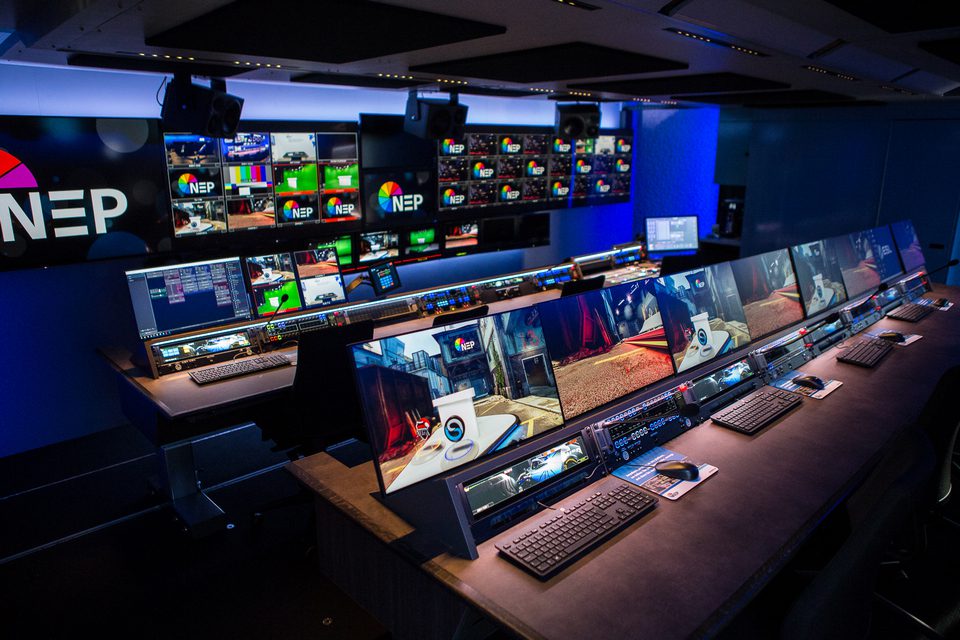
– How did your career develop after this?
I worked for Snell Advanced Media up until June or July 2018, when the company was acquired by Grass Valley around the beginning of 2018. Quite a lot of change in the industry, to be honest. Lawo, a company we competed with over a number of projects, had a similar role available, reporting directly to the CEO. So, I applied for that job. I joined Lawo in July or August 2018. My role at Lawo initially was a senior director of IP systems reporting directly to the CEO.
Lawo
– What were your responsibilities in this role?
My role at Lawo when I joined was to look across the entire business, and to provide leadership and strategic planning for the IP technology at Lawo, and provide that input directly to the CEO.
– How did your responsibilities change after you became the CTO at Lawo?
My role as the CTO includes a couple of things. One of my major roles is also to look after product management and to make sure that our products are well aligned with our business objectives. I have the responsibility for the day-to-day management of product management. In addition, I have responsibility for strategic planning for Research & Development teams. At board level I have responsibility for the company strategy from the technology perspective – making sure that our products are not only addressing our customers today but also addressing our customers in the future.
Were you still living in England, or did you move to Germany?
As you probably know, I took on additional responsibility during the summer of 2019 to become the chief technology officer for the Lawo company globally, and also part of that responsibility is all of the product management, it falls under my responsibility. Certainly, in the early stages of my time at Lawo I was probably traveling to and from the UK to Germany, at least maybe once every couple of months. Since I took on the new responsibility, I’m spending most of my time traveling back and forwards, spending half of my time in the UK and half of my time in Germany. But as you can probably appreciate the global roles, I also spend quite a bit of my time seeing a lot of our customers around the world. But my base is the UK.
– How are you planning to work now that Brexit has happened?
I think, at the moment it’s hard to know what changes we need to make. It’s still very early days, and at the moment I’m based in the UK with the travel restrictions due to the ongoing COVID situation. It’s very hard to tell what that means. Obviously, I don’t expect there to be too many changes, but, I think, we have to wait and see how this comes out over time.
Family
– What do you have in your life outside of your career? What are your hobbies?
I spend quite a lot of my time on the road or in business. When I have my time, it’s really spent with my family and my kids. We like to travel, when possible, on holiday, we like to get out. I’m a big fan of football, I try to watch football when I can, probably not as much as I’d like to, but it’s one of the big hobbies that I have. It’s certainly an ambition I had when I was very young – to play football. Although I never was successful in that space, I still have a keen interest in watching football.

– Have you a got a favorite team?
I don’t support any of the big teams, I support a team from one of my hometowns which is called Newcastle United. Unfortunately, we don’t do so well now, but we did very well in the late 90s. We’ll see, I have strong hopes.
– How many kids do you have?
Three kids – two girls, one boy. They vary from six years old through to nineteen, so I have one still at early school and one at university.
